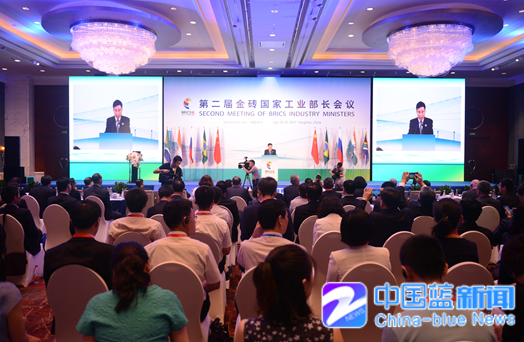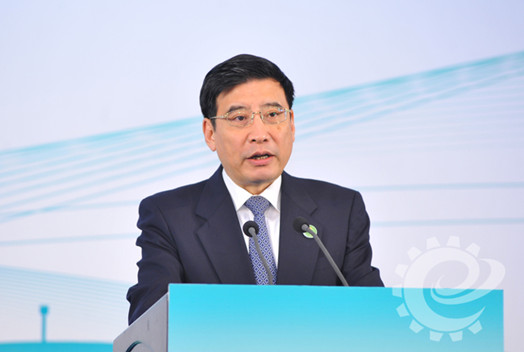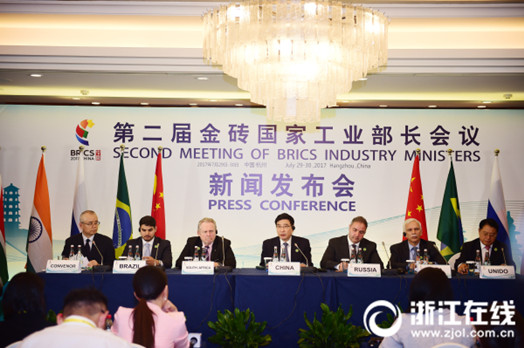

 |
|
More than 120 delegates from government and companies of the BRICS countries attend the Second Meeting of BRICS Industry Ministers in Hangzhou, Zhejiang province on July 29. [Photo/China-blue News] |
Ministers from the BRICS nations of Brazil, Russia, India, China and South Africa agreed to deepen cooperation on industry and innovation at the Second Meeting of BRICS Industry Ministers, which opened in Hangzhou, Zhejiang province on July 29.
The summit saw more than 120 delegates from government bodies and companies from the five countries exchange ideas on a range of issues of common concern, including technology development, innovation and investment in key industries.
Many attendees called for stronger cooperation among the countries during the meeting.
A vice minister of Brazil's Ministry of Development, Industry and Trade said that, as the biggest country in South America, Brazil has vast potential for other BRICS countries to seek cooperation opportunities.
A Russian delegate stressed the importance of innovation in the auto and internet industries at the meeting. "Russia has created a great mechanism to boost industrial innovation, and we hope that more cooperation in this field could be reached among BRICS countries," the official said.
"The world is in the midst of a new industrial revolution featuring digitalization, network and intelligence," said Miao Wei, China's minister of industry and information technology. "China is willing to share our successful experience and practices with other BRICS countries and strongly support cooperation in investment, research and development and human resources."
An action plan for deepening industrial cooperation was released as an outcome of the meeting. All ministers reached a consensus that the BRICS countries should face up to the opportunities and challenges being brought by Industry 4.0 together and work together to promote industrial development.
In terms of cooperation on upgrading industrial capacity, the plan stated that the BRICS nations should set up mechanisms for conducting bilateral and multilateral cooperation in key industries like high-end and automotive manufacturing.
Another area emphasized by the plan was coordinating industrial policies in order to promote efficiency.
The plan also encouraged companies, research institutes and universities to establish partnerships to research and develop new applications for new technologies. Collaborations between academia and industry could help promote the commercialization of important research findings.
Other areas where the BRICS nations could promote cooperation highlighted in the plan included cooperation among small and medium-sized enterprises, industrial standards agencies and collaboration with the United Nations Industrial Development Organization.
The summit also offered an opportunity for Zhejiang to showcase its strong economy and attract new investors.
"The manufacturing industry, the base of a thriving economy, is a strong support to Zhejiang's modernization," said Yuan Jiajun, governor of Zhejiang, at the meeting.
Yuan added that Zhejiang is grasping the opportunities brought by the new industrial revolution to further the development of the province's industrial sector, and he called for more exchanges and cooperation between the province and the BRICS nations.
 |
|
Miao Wei, head of China's Ministry of Industry and Information Technology, addresses the BRICS meeting in Hangzhou, Zhejiang province on July 29. [Photo/miit.gov.cn] |
 |
|
Miao introduces the action plan to the public at a news conference after the BRICS meeting in Hangzhou on July 29. [Photo/zjol.com.cn] |